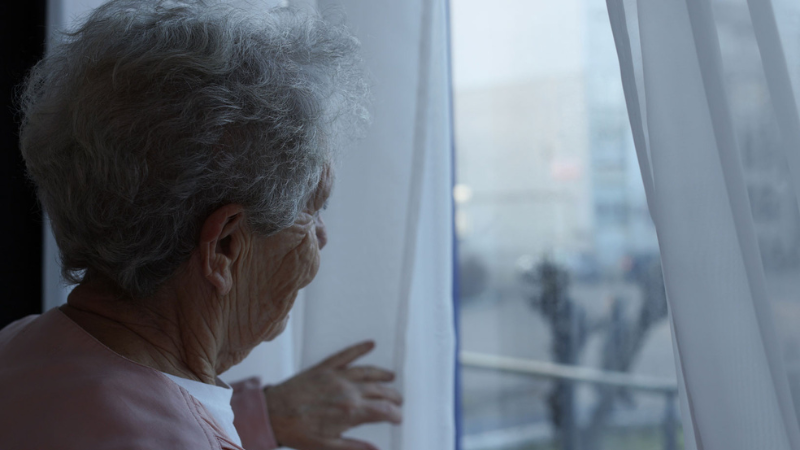Natural disasters, like hurricanes and tropical storms, can strike with little warning, causing widespread power outages and disruptions to daily life. When severe weather is on the horizon, being prepared can make all the difference. Whether you’re in an evacuation zone or simply preparing for potential power outages, it’s essential to have a plan in place—especially for those using medical alert devices to stay connected.
Here’s a helpful checklist to help you stay safe and ensure you and your loved ones are ready to weather any storm:
1. Charge Your Medical Alert Devices
During a natural disaster, power outages are likely, and it’s crucial that you proactively fully charge your medical alert device. These disruptions can also temporarily affect the functionality of your device. To minimize potential disruptions, we advise that you:
- Charge your mobile device daily leading up to an event in which you may lose power.
- Ensure that any Medical Guardian home base unit is connected to a power outlet to preserve the 32-hour backup battery power.
2. Stock Up on Essential Supplies
Preparing for a natural disaster means having enough supplies to last at least 7 days. This includes:
- Non-perishable food and bottled water
- Prescription medications and any necessary medical supplies
- Flashlights and extra batteries
- A battery-powered or hand-crank radio
- First aid kit and personal hygiene items
- Cash (ATMs may be down during power outages)
- Important documents (ID, insurance policies, medical information) in a waterproof container
3. Create a Family Communication Plan
Before the storm hits, it’s important to have a plan for staying in touch with your loved ones. Here’s what to include:
- Designate an emergency contact person outside the affected area that family members can check in with.
- Agree on a meeting point in case evacuation is necessary.
- Ensure all family members have a list of important phone numbers, including emergency services and local shelters.
4. Know Your Evacuation Plan
If you’re in a zone that may be evacuated, have a plan in place to leave quickly and safely:
- Keep your vehicle filled with gas.
- Pack an emergency bag with essential items like clothing, medications, and personal items.
- Know your evacuation routes and the locations of nearby shelters.
- Don’t forget to plan for your pets—most shelters require animals to be in carriers with proof of vaccinations.
5. Test Your Medical Alert Device
It’s always a good idea to test your medical alert device before a storm hits. Here’s how if you own a Medical Guardian device:
- Press the help button to ensure it’s connected and operational.
- Confirm that your emergency contacts are up to date.
- Reach out to us at 1-800-313-1191 or contact your alternate medical alert provider if you experience any issues.
If, for any reason, you are unable to reach your monitoring center during an emergency, remember to dial 911 directly for help.
6. Stay Informed
During a natural disaster, information is key. Stay updated on the storm’s progress and any changes in evacuation orders by tuning in to your local news & websites, weather apps, or a battery-powered radio. Make sure to follow guidance from your local authorities and emergency management teams.
7. Protect Your Home
If time permits, secure your home to minimize damage during a natural disaster:
- Board up windows or use storm shutters.
- Bring outdoor furniture and decorations inside.
- Ensure that important belongings and valuables are in a safe, secure location, ideally in waterproof containers.
- Turn off utilities like gas, electricity, and water if advised by local authorities.
8. Have a Backup Plan for Power Outages
Prolonged power outages can disrupt communication and medical services. Here’s how to prepare:
- Keep your phone, tablet, and any medical devices fully charged.
- Have a portable power bank or solar-powered charger on hand.
- If you rely on electricity for medical equipment, contact your local utility provider in advance for priority power restoration or to find emergency shelters that can support your needs.
9. Keep Calm and Stay Connected
During a natural disaster, it’s normal to feel anxious or overwhelmed, but staying calm and connected is essential. Keep your communication lines open with loved ones, and rely on your medical alert device or contact 911 for help if needed. If you are a Medical Guardian member, our monitoring team is ready to assist you in any emergency!
Conclusion: Stay Safe & Prepared
Being proactive and having a plan in place is the best way to stay safe during a natural disaster. Whether it’s charging your Medical Guardian device or stocking up on essential supplies, each step you take can make a difference in your safety and well-being.
The safety of our members is our top priority at Medical Guardian. If you need assistance with your medical alert device, don’t hesitate to reach out to us at 1-800-313-1191 during our hours of operation.
Stay safe, stay prepared, and thank you for trusting Medical Guardian to keep you connected when it matters most!

